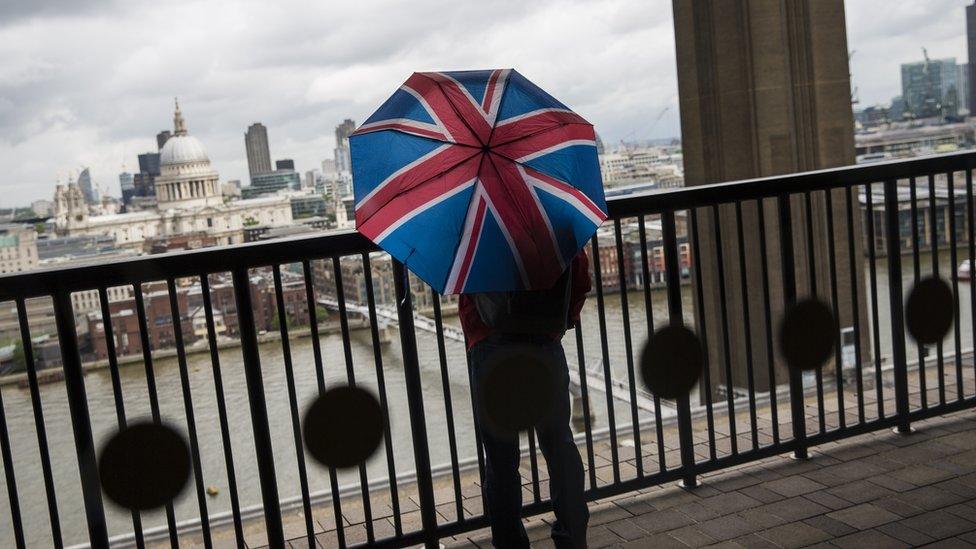UK productivity falls to pre-crisis level
- Published
- comments

The productivity of UK workers has dropped back to pre-financial crisis levels, according to official figures.
Hourly output fell 0.5% in the first three months of the year, the Office for National Statistics (ONS) said, external.
At the end of 2016, productivity returned to the level seen before the downturn, overturning years of decline which has weighed on wages.
But it has now slipped back again and is 0.4% below the peak recorded at the end of 2007, according to the ONS.
Economists have warned that the UK's productivity continues to lag behind its major trading partners such as the US, France and Germany.
ONS head of productivity Philip Wales said: "UK labour productivity growth has struggled since the 2008 economic downturn, and the fall in the first quarter of 2017 brings to an end a recent run of quarters of positive growth."
It was the first quarterly fall in productivity since the end of 2015, according to the ONS.

Analysis: Britain's 'shocking' productivity

Kamal Ahmed, BBC Economics editor
Today's productivity figures are bad to the point of shocking.
A fall of 0.5% in the first three months of the year takes the UK economy's ability to create wealth back below the level of 2007.
If an economy cannot create wealth efficiently, then the debates about government spending, public sector pay and austerity become all the harder.
If an economy cannot create wealth, then tax receipts - the mainstay of government income - weaken.

The UK has seen a steady economic recovery since the financial crisis, but it has been helped by longer hours and more people working.
Productivity has failed to grow consistently, raising concerns for businesses and policymakers.
Mike Cherry, president of the Federation for Small Businesses, said: "Productivity is being stifled by chronic underinvestment, exacerbated by current unprecedented uncertainty and reflected in sluggish wage growth."
The figures should also act as a "very sharp reminder" that Brexit is not the only challenge facing the UK, according to Ian Brinkley, acting chief economist at the Chartered Institute of Personnel and Development.
He said: "Unless more is done to tackle the nation's low productivity, people's wages and living standards will continue to fall and the UK will be ill-equipped to compete once we do leave the EU."
However, other economists said productivity - which is output divided by hours spent producing it - has partly fallen because there are record numbers of people in work.
"We shouldn't forget that the decline in productivity is the flipside of what we could call the remarkable success of the UK labour market," Dr Thijs van Rens, professor of economics at Warwick University, told the BBC.
The ONS said its figures also indicated "striking" differences between the City of London and other parts of the UK.
In 2015, output per hour worked in London's financial and insurance industries was about seven times higher than in the lowest productivity regional industries, it said.
- Published5 July 2017
- Published5 July 2017
